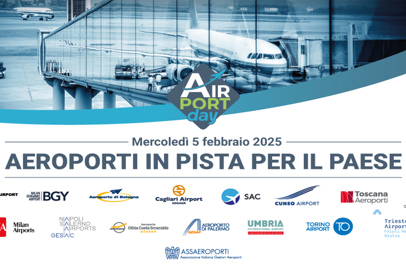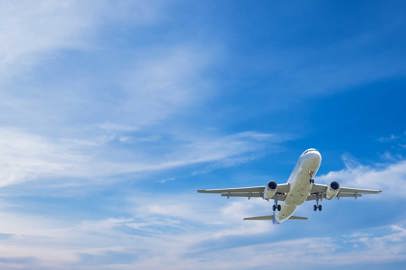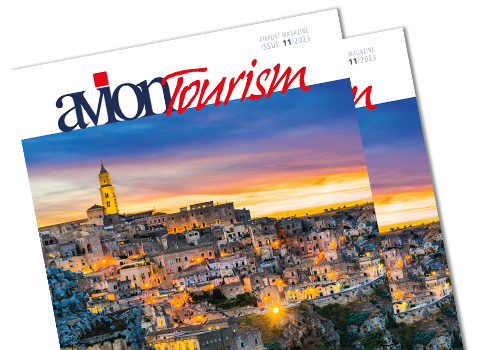12 March 2020
Iata reacts to latest US travel restrictions
IATA urged governments to prepare for the adverse economic impact
The International Air Transport Association (IATA) and its members continue to support governments in their efforts to contain the spread of COVID-19. At this time of extreme pressure on the industry, IATA urged governments to:
Prepare for the broad economic consequences of these actions,
Respond quickly to the financial frailty of airlines
Follow WHO (World Health Organization) recommendations.
These calls come in response to the US government’s banning of non-US citizens, and individuals who are not legal permanent residents of the US, who have been in the Schengen Area in the past 14 days from entry into the United States.
“These are extraordinary times and governments are taking unprecedented measures. Safety - including public health - is always a top priority. Airlines are complying with these requirements. Governments must also recognize that airlines - employing some 2.7 million people - are under extreme financial and operational pressures. They need support,” said Alexandre de Juniac, IATA’s Director General and CEO.
Economic Impact
When taking such measures, IATA urged governments to prepare for the adverse economic impact that they will cause. The dimensions of the US-Europe market are enormous. In 2019, there was a total of around 200,000 flights scheduled between the United States and the Schengen Area, equivalent to around 550 flights per day. There were around 46 million passengers (roughly equivalent to 125,000 travelers every day). While the US measure recognizes the need to continue to facilitate trans-Atlantic trade, the economic fallout of this will be broad.
“Governments must impose the measures they consider necessary to contain the virus. And they must be fully prepared to provide support to buffer the economic dislocation that this will cause. In normal times, air transport is a catalyst for economic growth and development. Suspending travel on such a broad scale will create negative consequences across the economy. Governments must recognize this and be ready to support,” said de Juniac.
Airline Financial Viability
Le compagnie aeree sono già alle prese con il grave impatto che la crisi COVID-19 ha avuto sui loro affari. Il 5 marzo 2020, la IATA ha stimato che la crisi potrebbe spazzare via circa $ 113 miliardi di entrate. Tale scenario non includeva misure così severe come gli Stati Uniti e altri governi (inclusi Israele, Kuwait e Spagna) hanno messo in atto da allora. Le misure statunitensi si aggiungeranno a questa pressione finanziaria. Il valore totale del mercato USA-Schengen nel 2019 è stato di $ 20,6 miliardi. I mercati di maggiore impatto sono:
Airlines are already struggling with the severe impact that the COVID-19 crisis has had on their business. On 5 March 2020, IATA estimated that the crisis could wipe out some $113 billion of revenue. That scenario did not include such severe measures as the US and other governments (including Israel, Kuwait, and Spain) have since put in place. The US measures will add to this financial pressure. The total value of the US-Schengen market in 2019 was $20.6 billion. The markets facing the heaviest impact are:
US-Germany ($ 4 miliardi)
US-France ($ 3,5 miliardi)
US-Italy ($ 2,9 miliardi).
“This will create enormous cash-flow pressures for airlines. We have already seen Flybe go under. And this latest blow could push others in the same direction. Airlines will need emergency measures to get through this crisis. Governments should be looking at all possible means to assist the industry through these extreme circumstances. Extending lines of credit, reducing infrastructure costs, lightening the tax burden are all measures that governments will need to explore. Air transport is vital, but without a lifeline from governments we will have a sectoral financial crisis piled on top of the public health emergency," said de Juniac.
WHO Recommendations
The World Health Organization (WHO) continues to advise against the application of travel or trade restrictions to countries experiencing outbreaks. On 29 February 2020 the WHO issued revised guidance which included the following: “Travel measures that significantly interfere with international traffic may only be justified at the beginning of an outbreak, as they may allow countries to gain time, even if only a few days, to rapidly implement effective preparedness measures. Such restrictions must be based on a careful risk assessment, be proportionate to the public health risk, be short in duration, and be reconsidered regularly as the situation evolves.”
“We urge the US and other governments that have placed travel restrictions to follow the WHO guidance. This is fast evolving. Health and safety are the top priorities for governments and the air transport sector. But the effectiveness and necessity of travel restrictions must be continuously reviewed,” said de Juniac.
Edited by Alisè Vitri
Text source: IATA Corporate Communications
Photo Visual: Sisterscom.com / Shutterstock
You might be interested in
Useful Info

Authority
Olbia Airport will be named after Prince Karim Aga Khan IV
ENAC pays tribute to the founder of modern tourism in Costa Smeralda: a key figure in the history of aviation and the development of Sardinia
Useful Info

Authority
Airport Day
The national event, organized by Assaeroporti, is held on February 5 to celebrate the strategic role of the 17 participating Italian airports
Useful Info

Authority
ENAC: reorganization and future challenges of air transport
At the 2025 Meeting, a discussion on innovation, sustainability, innovative air mobility and quality of services, in line with the country's strategic objectives


